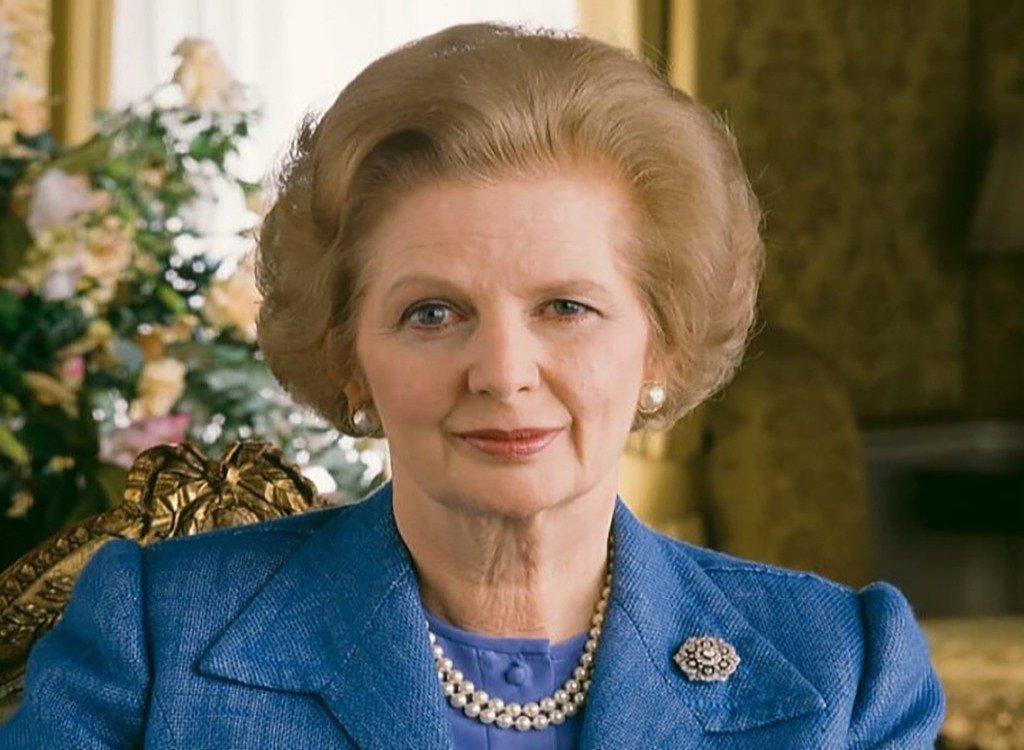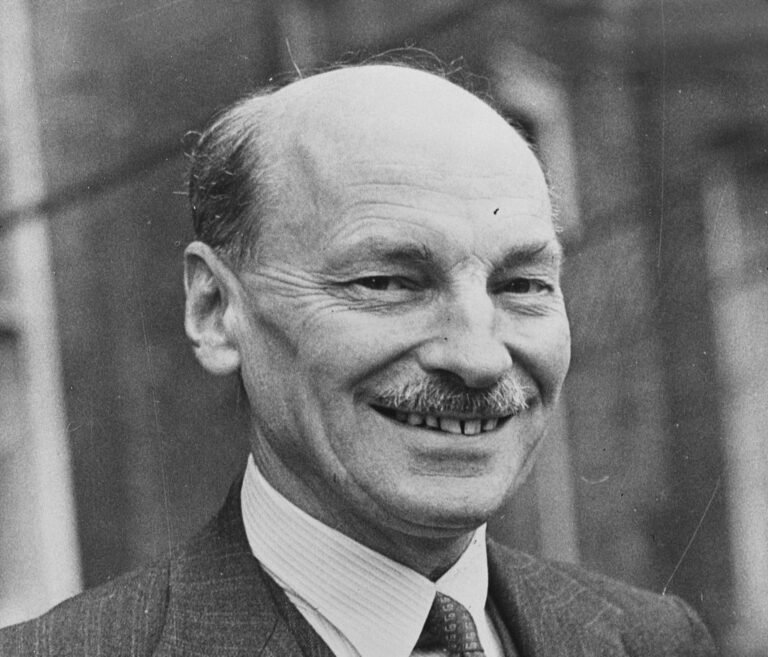Margaret Thatcher, also known as the “Iron Lady,” was a significant figure in British history. She served as the first female Prime Minister of the United Kingdom from 1979 to 1990.
Thatcher’s policies and leadership style left a lasting impact on the country and the world. She was known for her strong will, clear vision, and determination. Her tenure saw many changes, including economic reforms and a shift towards a more market-oriented economy.
Critics and supporters alike acknowledge her role in shaping modern Britain. This blog post will explore her life, her achievements, and the controversies that surrounded her. Understanding Margaret Thatcher helps us see the complex nature of leadership and the profound effects one individual can have on a nation.
Early Life And Education
Margaret Thatcher’s journey to becoming the first female Prime Minister of the United Kingdom is truly inspiring. Her early life and education played a crucial role in shaping her strong personality and determined spirit. Let’s dive into the significant experiences from her childhood and university years that contributed to her remarkable career.
Childhood In Grantham
Margaret Hilda Roberts was born on October 13, 1925, in the market town of Grantham, Lincolnshire. Her father, Alfred Roberts, was a grocer and a local alderman, which introduced young Margaret to the world of politics early on. She often helped her father in the shop, learning the values of hard work and perseverance.
Living in an apartment above the family grocery store, Margaret experienced a modest upbringing. Despite the financial constraints, her parents emphasized the importance of education and moral values. This environment fostered her ambition and intellectual curiosity.
University Years
Margaret won a scholarship to study chemistry at Somerville College, Oxford. This was a significant achievement, considering her humble beginnings. At Oxford, she was one of the few female students studying science, which speaks volumes about her determination and courage.
During her time at Oxford, she developed a keen interest in politics. She became the president of the Oxford University Conservative Association. This role was her first step into the political arena, offering her valuable insights and experience.
Margaret graduated in 1947 with a degree in chemistry, but her passion for politics continued to grow. Her educational background in science gave her a unique analytical perspective, which she later applied in her political career.
How do you think Margaret’s early experiences shaped her leadership style? Do you believe that the values instilled during childhood can influence one’s career path so profoundly? Reflecting on her journey, it is clear that every experience, no matter how small, contributed to the formidable leader she became.
Political Rise
Margaret Thatcher’s political journey is a tale of determination and resilience. Her ascent in British politics marks a significant chapter in history. Known for her strong will and clear vision, Thatcher’s rise was not without challenges. She faced numerous obstacles but never wavered in her pursuit of leadership.
Entry Into Politics
Margaret Thatcher entered politics in the early 1950s. She ran for a seat in Parliament in 1950 and 1951 but lost both times. In 1959, she finally won a seat as the Member of Parliament for Finchley. This victory marked the beginning of her political career.
As a new MP, she quickly made her mark. She was known for her strong opinions and clear arguments. In 1961, she became the Parliamentary Undersecretary at the Ministry of Pensions and National Insurance. This role gave her valuable experience in government.
Becoming Leader Of The Conservative Party
In 1975, Thatcher made history. She became the first woman to lead a major British political party. Her election as the leader of the Conservative Party was a turning point. She defeated Edward Heath, the former Prime Minister, in the leadership contest.
Her leadership style was firm and decisive. She focused on economic policies and reducing the power of trade unions. Her clear vision and strong leadership skills gained her widespread support. This paved the way for her eventual rise to Prime Minister.
Prime Ministerial Tenure
Margaret Thatcher’s time as Prime Minister shaped British politics. She led the country through significant changes. Her leadership was marked by strength and determination.
First Term Achievements
During her first term, Thatcher made bold moves. She tackled economic challenges head-on. Inflation dropped and unemployment rates improved. Her approach was tough but effective. Her strong stance on foreign policy earned respect globally. The Falklands War victory boosted her popularity. She showed firm leadership in crisis.
Key Policies And Reforms
Thatcher introduced several key policies. She focused on reducing state control. Privatization of industries was a major step. It aimed to improve efficiency and competitiveness. Tax reforms were also significant. She lowered taxes to encourage investment. Her policies aimed at reviving the economy. She emphasized individual responsibility and free markets.
Her reforms were often controversial. Yet, they had lasting impacts. The housing market saw changes with the Right to Buy scheme. It allowed people to buy their council homes. This policy aimed to increase home ownership. Education reforms focused on standards and accountability. Thatcher’s policies reshaped various sectors.
Economic Policies
Margaret Thatcher’s economic policies focused on reducing government intervention. She promoted free markets, privatization, and individual entrepreneurship. Her approach aimed to boost economic growth and efficiency.
Margaret Thatcher, the first female Prime Minister of the United Kingdom, was known for her strong and often controversial economic policies. Her approach, which later became known as Thatcherism, aimed to revitalize the British economy. She emphasized the role of free markets and limited government intervention. Let’s dive into some of her key economic policies.
Free Market Reforms
Thatcher believed in the power of free markets. She argued that less government interference would lead to a more efficient and productive economy.
One of her first major steps was to reduce inflation. She did this by controlling the money supply and cutting public spending. This move was bold and not without pain, but it was effective.
Thatcher also introduced tax cuts. She lowered the top rate of income tax, aiming to boost investment and entrepreneurship. This idea was simple: let people keep more of their money, and they will invest it wisely.
Privatization Initiatives
Thatcher’s privatization efforts were groundbreaking. She believed that businesses run by the government were less efficient. So, she moved many state-owned enterprises to the private sector.
This included major companies like British Telecom and British Gas. Privatization led to increased competition and better services for consumers. It also generated significant revenue for the government.
Moreover, she encouraged ordinary people to become shareholders. This was a clever way to spread wealth and give people a personal stake in the economy’s success.
What do you think about Thatcher’s approach to privatization? Do you believe it helped or hurt the economy in the long run? Your thoughts can lead to an engaging discussion.
Margaret Thatcher’s economic policies were a blend of bold reforms and controversial decisions. They reshaped the British economy and left a lasting legacy. Whether you agree with her methods or not, her impact is undeniable.
Social And Domestic Policies
Margaret Thatcher’s social and domestic policies focused on reducing government intervention. Her approach aimed at promoting individual responsibility and free market principles. This led to significant changes in Britain’s economic landscape.
Margaret Thatcher, often referred to as the “Iron Lady,” left a significant impact on the United Kingdom through her social and domestic policies. Her tenure as Prime Minister from 1979 to 1990 was marked by a series of reforms that aimed to reshape the British society and economy. From education to healthcare, Thatcher’s policies were both revolutionary and contentious, sparking debates that continue to this day.
Education Reforms
Thatcher believed in the power of education to drive economic success. Her government introduced the Education Reform Act of 1988. This act brought in the National Curriculum, ensuring all students had access to the same subjects and standards.
Thatcher also aimed to increase accountability in schools. Schools were required to publish their results, allowing parents to make informed choices. This shift was designed to create competition and improve overall educational standards.
However, not everyone agreed with her methods. Some educators felt the focus on testing was too narrow. They argued it put undue pressure on students and teachers alike. What do you think? Should education prioritize standardized testing or a more holistic approach?
Healthcare Changes
Thatcher’s approach to healthcare was equally transformative. She introduced internal markets within the National Health Service (NHS). This meant hospitals and healthcare providers competed for patients, aiming to increase efficiency and reduce costs.
These changes aimed to make the NHS more sustainable. Thatcher’s government believed that competition would drive improvements in service quality. This was a radical shift from the previous model, where the NHS operated as a single, unified system.
Critics, however, were concerned about the impact on patient care. They feared that competition could lead to inequality in service provision. Reflect on this: Does introducing market principles into public services help or hinder their effectiveness?
Thatcher’s social and domestic policies were undoubtedly bold. They sparked intense debates and left a lasting legacy on British society. Whether you view her reforms as positive or negative, they undeniably shaped the direction of the UK for decades to come.

Credit: www.britannica.com
Foreign Policy And Diplomacy
Margaret Thatcher, known as the “Iron Lady,” had a significant impact on foreign policy and diplomacy. Her strong leadership style influenced global relations and shaped the course of history.
Relations With The US
Margaret Thatcher shared a close relationship with US President Ronald Reagan. Their partnership strengthened the bond between the UK and the US. Both leaders believed in free market policies and a tough stance against communism. Their alliance was crucial during the Cold War. They coordinated efforts to challenge the Soviet Union. This cooperation helped bring an end to the Cold War.
Falklands War
The Falklands War was a defining moment in Thatcher’s leadership. In 1982, Argentina invaded the Falkland Islands, a British territory. Thatcher responded decisively, sending a naval task force to reclaim the islands. The British forces achieved victory in just 10 weeks. This success boosted Thatcher’s popularity and reinforced her image as a strong leader. It also sent a message to the world about Britain’s resolve to defend its interests.
Controversies And Criticisms
Margaret Thatcher, the Iron Lady, remains a divisive figure in British history. Her policies and decisions sparked debates and protests. Here, we explore two major controversies during her tenure as Prime Minister.
Miners’ Strike
The Miners’ Strike of 1984-85 was one of the most significant industrial actions in the UK. Thatcher’s government aimed to close unprofitable coal mines. This decision led to massive job losses and economic hardship for mining communities.
Miners and their families faced a tough battle. They organized strikes and protests. The government responded with a strong police presence, leading to violent clashes. Many believe Thatcher’s approach was harsh and lacked empathy for the working class.
Poll Tax
In 1989, Thatcher introduced the Community Charge, commonly known as the Poll Tax. This tax aimed to replace domestic rates with a flat-rate tax on individuals. It caused uproar among the public. People felt it was unfair, as it did not consider income levels.
Mass protests erupted across the country. The tax led to widespread civil disobedience. Many refused to pay it, resulting in chaos and unrest. Thatcher’s government faced heavy criticism, and the Poll Tax contributed to her eventual downfall.
Legacy And Cultural Impact
Margaret Thatcher, the Iron Lady, left a mark on the world that is both profound and controversial. Her legacy and cultural impact continue to spark debates, influence political ideologies, and shape media portrayals. Let’s delve into the specifics of her impact, especially on the Conservative Party and how she is portrayed in the media.
Impact On Conservative Party
Margaret Thatcher transformed the Conservative Party. She introduced policies that emphasized free markets, individual responsibility, and a reduced role for the state. These policies not only revitalized the party but also reshaped British politics.
Her leadership style was assertive and unapologetic. This approach earned her both admiration and criticism. Many of today’s Conservative leaders still look up to her as a model of strong, decisive leadership.
Thatcher’s influence is evident in the party’s continued focus on economic liberalism. Her legacy endures in the party’s commitment to market-driven solutions and deregulation. However, this has also led to ongoing debates within the party about the balance between free-market policies and social welfare.
Portrayal In Media
The media has played a significant role in shaping Thatcher’s legacy. Her portrayal varies widely, reflecting her polarizing nature. Some see her as a strong, principled leader who revived the British economy. Others view her as a figure who deepened social divisions.
Movies and TV series have brought her story to new generations. Meryl Streep’s portrayal of Thatcher in “The Iron Lady” brought a human dimension to her character. It highlighted both her political achievements and personal challenges.
Thatcher’s speeches and interviews are still widely shared. They serve as a study in political communication and leadership. Her media presence continues to influence how politicians, especially female leaders, are perceived and portrayed.
What do you think about Thatcher’s impact? Do you believe her policies have stood the test of time? Your thoughts and opinions help keep this conversation alive and relevant.
FAQs
What Did Margaret Thatcher Do That Was Controversial?
Margaret Thatcher’s controversial actions included implementing harsh economic policies, privatizing state-owned industries, and reducing the power of trade unions.
Why Is It Called The Thatcher Effect?
It is called the Thatcher effect because it was first demonstrated using an image of Margaret Thatcher.
What Caused Margaret Thatcher To Resign?
Margaret Thatcher resigned due to party pressure and declining support over her unpopular policies, including the Community Charge.
Did Margaret Thatcher Get Along With Queen Elizabeth?
Margaret Thatcher and Queen Elizabeth had a complex relationship. They respected each other but had differing views and styles.
Conclusion
Margaret Thatcher remains a powerful symbol in political history. Her leadership style was unique and impactful. Many remember her for strong economic policies. Others recall her unwavering resolve and conviction. Her tenure as Prime Minister left a lasting legacy. Debates about her influence continue today.
Some admire her, others critique her decisions. But her story is undeniably significant. Understanding Thatcher’s era helps us learn from the past. Her contributions shaped the world in many ways. Reflecting on her leadership offers valuable insights. Her legacy endures, inspiring discussions for future generations.








